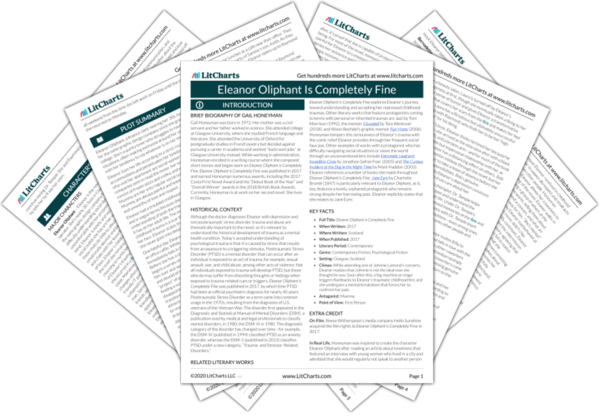Whenever Eleanor insists that she’s fine, she’s speaking in terms of her physical health: for instance, she can believe that she is fine if she’s physically healthy, waking up in the morning, and going to work. Dr. Temple teaches Eleanor that she should also be assessing her fineness in terms of her
mental health: Eleanor has emotional needs, and if these needs aren’t being met, Eleanor
isn’t fine—regardless of the state of her physical health. Meanwhile, “pale brown eyes” might refer to the other, mysterious person from Eleanor’s past.
